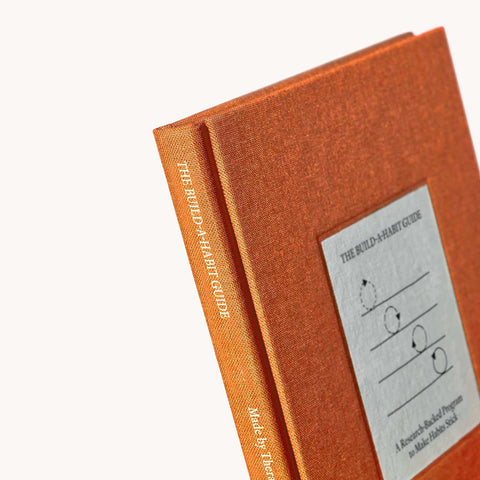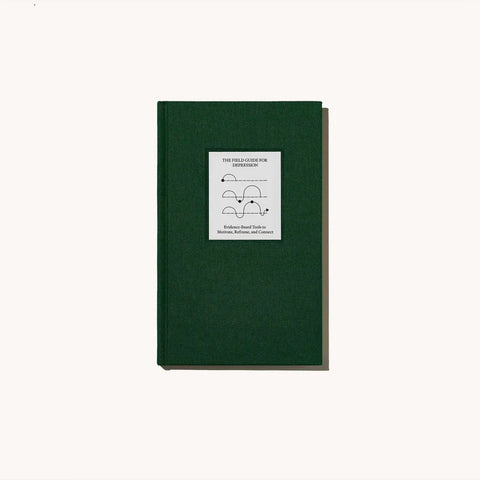Unlocking Inner Harmony: How to Control Your Mind and Emotions for a Better You

You already know controlling your emotions is essential for personal growth and well-being. When you manage your feelings, you gain greater clarity in decision-making and healthier relationships. So, how can you harness the power of emotional control to lead a more fulfilling life?
Before jumping into that let us understand the basics first.
Journaling in plain and simple language is recording your thoughts, feelings, and experiences in writing, akin to having a private dialogue with yourself.
But in real life, this practice holds significant value, it promotes self-awareness and can alleviate stress and anxiety.
Think of it as a mental pressure release valve, enabling you to express worries, dreams, and thoughts, ultimately providing a sense of relief and better emotional management. In essence, journaling serves as a potent tool for organizing thoughts and enhancing emotional well-being.
Let us first understand what mindful journaling is.
Mindful journaling is a helpful self-reflection and emotional management journaling method. It is finding a quiet space, using a notebook, deep breathing, and honestly writing about your thoughts and feelings.
You can describe physical sensations, reflect on triggers, practice gratitude, envision your future, and gain insights from what you've written. This is to provide a healthy way to release and process your emotions, ultimately helping you understand and control your thoughts and feelings better.
There are many benefits of journaling, especially mindful journaling. We will discuss how to control your mind and emotions.

Tips On How To Control Your Mind And Emotions.
1. Reframing Negative Thoughts
Negative thoughts can have a powerful impact on our emotions and, consequently, our actions. To control your mind and emotions, work on reframing negative thoughts. This means challenging and changing those pessimistic or self-critical inner dialogues. When you identify a negative thought like, "I'll never succeed at this," try to rephrase it as, "I may encounter challenges, but they offer opportunities for learning and growth." It's essential to recognize that this process demands both time and patience. It's like weeding a garden; you need to remove the negative thoughts to make space for positivity to flourish. Mindful living is about being kind to yourself, and reframing negative thoughts is a crucial step in that direction.
Journal like Therapy Notebooks Build - A - Habit Guide Notebook is the first step you need to take for your healing journey.
2. Self-Awareness through Mindful Journaling
The journey to mindful living starts with self-awareness, and mindful journaling stands out as a powerful tool for self-discovery. Allocate a few minutes each day to document your thoughts, emotions, and experiences. This practice creates a secure space for exploring your inner world. Through this practice, you create a secure haven for delving into your inner world. When you translate your thoughts and emotions onto paper, it provides you with clarity. You begin to discern recurring patterns in your thinking and unveil the catalysts behind certain emotions. This self-awareness forms the foundational stride in managing your mind and emotions. Without it, navigating through life is akin to sailing without a compass to guide you.
3. Techniques for Emotional Control
Emotions can be profoundly influential, often guiding our actions. To embrace mindfulness more fully, mastering emotional management is essential. Deep breathing and relaxation techniques become invaluable allies in this pursuit. Whenever you feel inundated by a rush of emotions, take a moment to pause and engage in a series of deliberate, slow breaths. This seemingly simple action possesses the remarkable ability to soothe your mind and empower you to regain emotional composure. Additionally, meditation stands out as a potent practice for bolstering emotional regulation. Through meditation, you learn to observe your thoughts and emotions without passing judgment, enabling you to detach from them and restore equilibrium. Consistent meditation can even rewire your brain, facilitating a greater capacity to maintain composure in challenging situations.
A journal like Therapy Notebooks The Therapy Journal is great for emotional control practice.
4. Cultivating Mindfulness
Mindful living is, of course, about cultivating mindfulness itself. Mindfulness involves paying full attention to the present moment without judgment. It's about experiencing life as it unfolds, rather than dwelling on the past or worrying about the future. You can cultivate mindfulness through formal practices like meditation or yoga. However, you can also integrate mindfulness into your daily life by being fully present in everyday activities. When you eat, savour each bite. When you walk, notice the sensation of each step. Being mindful in small moments can lead to a more mindful life overall
When you start your mindful journaling routine, pause for a moment to attune to your inner musings. Inquire within to discern your current emotional state: are you experiencing happiness, sadness, anxiety, or perhaps even excitement?
Don't hesitate to jot down these emotions. Observe how your body responds to these emotions. Do you notice relaxation, or do you sense tension in your body? The true essence of mindful journaling comes to life when you delve into the "why" behind these emotions.
What events or thoughts triggered these feelings? It's akin to becoming a detective of your mind, searching for clues to comprehend the intricate network of your emotions. This process is not about making judgments but rather about exploration and revelation. As you document these triggers, you initiate the process of unwinding the complexities of your thoughts. You may uncover connections you hadn't previously recognized. Think of it as untangling a knot of wires, gradually straightening them to discern what connects where. This untangling can lead to valuable insights into your emotional world, offering a better understanding of yourself and your reactions. It's a gentle journey inward, a dialogue with your inner world.
In the next section, we will understand the benefits of mindful journaling after understanding how to control mind and emotions for the greater good.

5 Benefits Of Mindful Journaling
Having mastered the art of mindfulness and learned how to control your mind, it's time to explore the incredible benefits of mindful journaling. How can journaling enrich your life and well-being? Let's dive in and make it a part of your daily routine for a better you.
1. Manages Stress And Emotions
Mindful journaling effectively reduces stress and anxiety by promoting non-judgmental exploration of emotions and thoughts. It helps uncover underlying worries and fears contributing to these issues. By recording concerns and triggers, individuals gain clarity and control, ultimately leading to a reduction in chronic stress and anxiety as they develop a healthier perspective on their emotions. Mindful journaling serves as a straightforward yet influential method for enhancing both mental and physical well-being. Commence by locating a serene environment, engaging in deep breathing exercises, and pondering your present emotional condition, whether it encompasses joy, sorrow, unease, or enthusiasm.
2. Improved Emotional Regulation
Journaling facilitates a deeper understanding of one's emotions and reactions. By consistently documenting their feelings and responses to various situations, individuals can identify patterns and triggers. This heightened emotional awareness empowers them to better regulate their emotions. For example, someone prone to anger outbursts can identify early signs of frustration in their journal and learn to employ coping strategies like deep breathing or mindfulness. This self-regulation can significantly improve emotional well-being and lead to more harmonious relationships and better decision-making.
3. Enhanced Problem-Solving:
Mindful journaling serves as a problem-solving tool by providing a structured space for brainstorming and reflection. When faced with complex issues or decisions, individuals can use their journals to list pros and cons, set goals, and explore different solutions. Writing down their thoughts helps organize ideas, identify potential obstacles, and clarify priorities. Over time, this methodical approach to problem-solving can lead to more effective decision-making and a sense of accomplishment as issues are addressed and resolved.
4. Heightened Self-Awareness:
Self-awareness plays a pivotal role in personal growth and progress. Mindful journaling encourages individuals to delve into their thoughts, convictions, and principles. By documenting their aspirations, concerns, and personal encounters, individuals attain a deeper comprehension of their selves. This introspection unveils recurring behavioural patterns, identifies strengths and weaknesses, and illuminates long-term objectives. As one's self-awareness expands, they are better equipped to make well-informed life choices, harmonize their actions with their values, and pursue a more gratifying and authentic life journey.
Remember, mindful journaling is a simple yet impactful practice that can notably affect your mental and physical health. Start by locating a serene space, taking a pause for deep breaths, and reflecting on your present emotional state – whether it's happiness, sadness, anxiety, or excitement.
FAQs
Is a therapy journal suitable for mindful journaling?
Yes, a therapy journal can enhance mindful journaling by providing structure for self-improvement and self-awareness. Journals like Therapy Notebooks The After-Trauma Notebook and Therapy Notebooks The Field Guide to Depression are great options to incorporate with therapy.
Can mindful journaling be a helpful tool for managing anger?
Yes, mindful journaling can help manage anger by providing a constructive outlet for exploring and understanding the underlying causes of anger.
What tools are essential for mindful journaling?
The essential tools for mindful journaling include a journal or notebook and a pen or pencil. A simple journal like Therapy Notebooks Build - A - Habit Guide Notebook is great to start with.
Can mindful journaling help in building better communication skills?
Mindful journaling can enhance communication skills by providing a private space for practising the expression of thoughts and emotions. This often leads to more effective and thoughtful communication in personal and professional relationships.
Conclusion
Understanding that mindfulness isn't achieved overnight but through practice, and mindful journaling serves as a crucial tool in this process. This simple yet potent method equips you to better comprehend your emotions, recognize thought patterns, and effectively manage stress. It provides a reliable approach for continuous self-improvement and self-discovery, requiring just a few daily moments to prioritize your emotional well-being and personal growth. So, take your journal in hand and commence your ongoing journey toward a happier and healthier self, acknowledging that it's a gradual process resulting in an improved body and mind. Visit The Bubble Wrap for more journal options and find the one for you.


